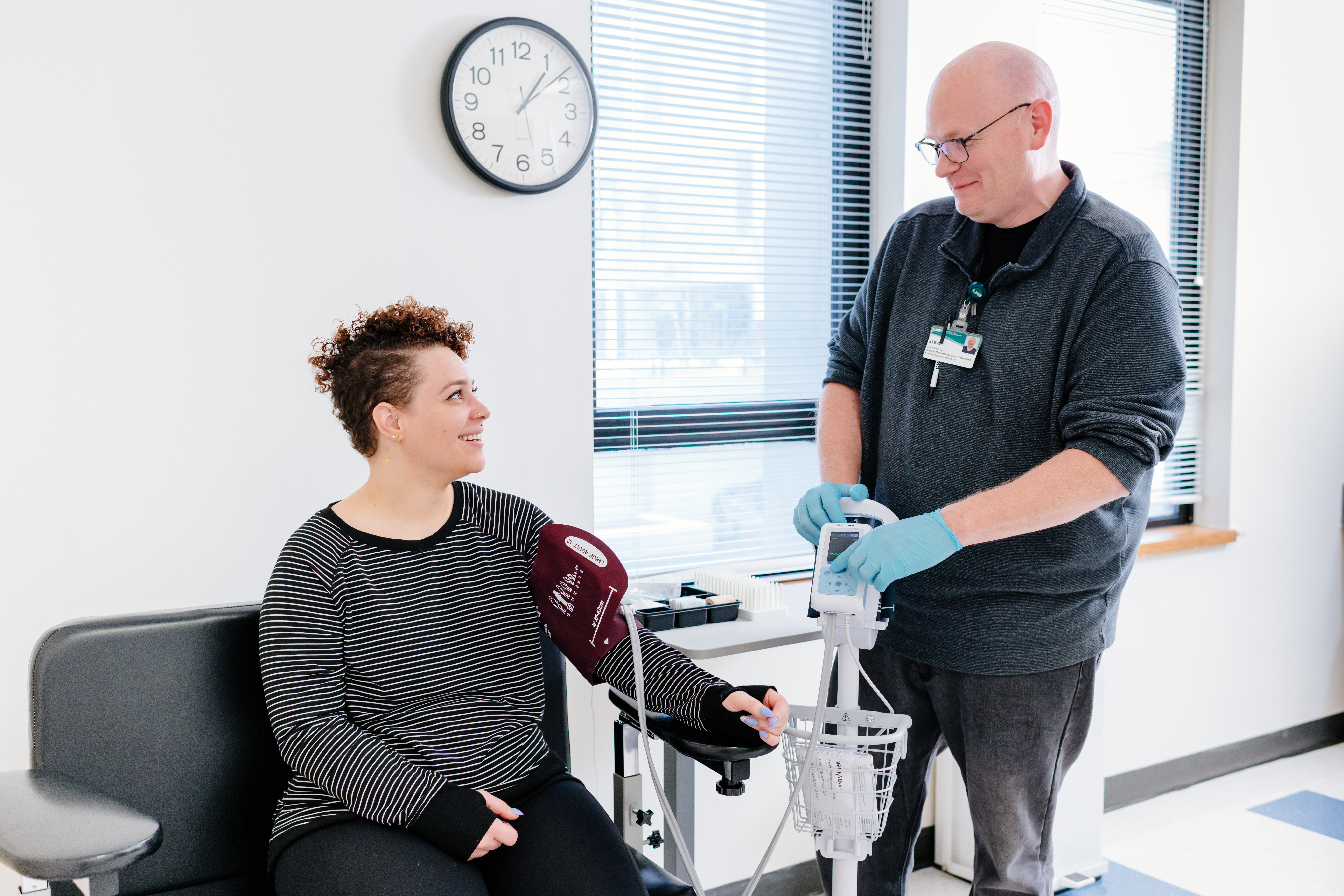
Heart disease is the leading cause of death for women in the United States, according to the American Heart Association. Heart disease can develop and present differently in women compared to men, and studies show that women may downplay their symptoms or delay seeking treatment. In women, the risk of heart attack and stroke increases with age, especially after menopause. Unfortunately, only about 50 percent of women recognize that heart disease is a threat to their health. Experts at the University of Alabama at Birmingham Cardiovascular Institute and UAB St. Vincent’s say it is never too early or too late for women to begin protecting themselves from heart disease.
How to prevent heart disease
“With heart disease prevention, small changes can make a huge difference,” said Gretchen Wells, M.D., Ph.D., director of the UAB Medicine Women’s Heart Health Program. “Most of our recommendations are low-tech and can easily be incorporated into an individual’s daily routines.”
Wells’ recommendations include:
- Eating a heart-healthy diet
- Exercising
- Maintaining a healthy weight
- Quitting smoking
- Controlling cholesterol, blood glucose and blood pressure levels
- Managing stress
- Moderating alcohol use
- Getting enough sleep
For women who want to start protecting their heart health, Wells recommends starting small and working their way up. For example, if walking for 30 minutes a day or shifting to a healthier diet seems intimidating at first, start with a reachable goal. This could mean walking for five to 10 minutes a day or adding a healthy side to a meal per day. As these habits become easier, continue to build upon them each day.
“It may also help to establish some of these healthy habits by involving everyone in the family,” Wells said. “Food and exercise are medicine, and everyone can benefit from eating healthier and getting exercise. There are some great resources for families for maintaining a healthy diet and making fun, colorful and interesting meals that are healthy for the whole family.”
Symptoms to look out for
Sometimes women may experience symptoms that are not typically associated with a heart attack, such as anxiety, an upset stomach, or unusual tiredness and weakness. Wells says, if a woman is experiencing any symptoms that are out of the ordinary, that justifies additional investigation.
Other common symptoms of a heart attack include the following:
- Uncomfortable pressure or pain in the chest
- Shortness of breath
- Unexplained pain in the shoulder, back, arm or jaw
- Unexplained nausea or vomiting
- Excessive sweating
- Lightheadedness or fainting
- Excessive heart palpitations
If an individual is experiencing any of the symptoms above, call 911 and get to the hospital immediately.
Do not avoid seeking treatment
“We sometimes see women delay seeking treatment, because they feel that they are too busy with work/home life and managing kids or elderly parents to put themselves first and get an evaluation,” said Monica Hunter, M.D., cardiologist at UAB St. Vincent’s. “Some patients feel they are not taken seriously by health care providers and are afraid they may just be anxious or overreacting to any symptoms out of the ordinary.”
Hunter says women should always seek medical attention if they sense that something is off.
“I would much rather see them in the emergency department or clinic and evaluate them to see that they are OK instead of missing that opportunity and they have a heart attack or stroke,” Hunter said.
Women who have had several conditions during pregnancy may have an increased risk of heart disease later in life. Women who have experienced conditions such as gestational diabetes, gestational hypertension and preeclampsia should let their health care providers know and make sure their blood sugar, cholesterol levels and blood pressure are checked regularly.
Hunter recommends making regular appointments with a health care provider. At this appointment, patients can discuss risk factors, set their exercise and weight loss goals, get blood work done, and refill any medications. Health care providers can also provide resources to help patients stop smoking and steps to help patients minimize their risk factors for heart disease.
The UAB Women’s Heart Health Program is designed to help patients reduce their risk of heart disease and stroke by providing medical care focused on women’s individual needs. An experienced team of cardiac experts will evaluate and manage the health of women with all types of heart disease and address the distinct concerns and unique risk factors that women may experience. The program focuses on treating some of the conditions encountered primarily in women, including coronary microvascular disease, heart failure, spontaneous coronary artery dissection and cardiovascular complications of pregnancy.
The cardiologists and care teams at UAB St. Vincent’s provide a personalized care plan for each patient’s heart and vascular health. Their complete cardiology care ranges from screenings and preventive services to complex heart and vascular and surgeries.

